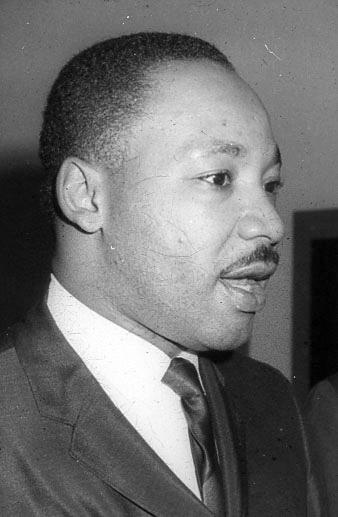Choosing the faith that MLK advocated
This week is a good time for the Saint Joseph’s University community to ask ourselves if we will collude with the powers of chaos or if we will instead draw upon the ancient gift of hope in the beloved community?
When Martin Luther King Jr. arrived on Hawk Hill in October 1967, he had just published a new book “Where Do We Go From Here: Chaos or Community?” This work was a bold self-assessment of the Civil Rights Movement and the struggle for racial desegregation. King was not afraid to ask hard questions of himself, his followers and the nation. In that book, he ultimately made the case for hope as the key ingredient necessary for things to change and human rights to advance. He was willing to put faith in the God-given virtue of hope.
King’s notion of hope was often tied with a vision for what he called “the beloved community,” grounded in the plethora of images, declarations and constituent values repeated by Jesus of Nazareth regarding the Kingdom of God. King spoke often about our life in real time as a beloved community striving by God’s grace to establish peace, justice and human rights. The beloved community was the object of King’s activism and hope was the fuel for his methods of achieving this through nonviolent protest and resistance.
His address asked St. Joe’s students to consider our history truthfully so as to learn the reality of current challenges. The truth about the beginnings of our systems of injustice and practices of human degradation is crucial if we are to create a just society. As members of a university community, we should not forget that the first documented slave in the U.S. was the property of the first president of Harvard, the first college. A man simply called “the Moor” waited on the first college students as a slave. The very foundation of all of the Ivy League universities in the U.S. was supported by profits from slaveholding.
The legacy of modern-day segregation, racism and systems of privilege based on skin color, gender and other arbitrary determinants has its roots in our institutions of higher education. Even today at St. Joe’s, each year we admit students to Phi Beta Kappa, an honor society founded in 1776 by slave owners to create an elite society among those who treated humans as property.
King is one of the most notable contributors to the fields of public theology and social ethics. For him, religion was based on a theology that required activism. He eloquently made the case to St. Joe’s students that we cannot simply combat forms of physical violence, but we need to be even more alert to the subtle, but no less damaging, impact of spiritual and psychological violence. He was not willing to simply cope with such evils, but to hope in a covert and complete resistance to such forces.
During his visit to St. Joe’s, King said to students, “We have come a long, long way, but we still have a long, long way to go.” The past year has shown us that we have not come nearly as far as we thought. In fact, we may have even regressed back into a world where a covert white supremacy has now been encouraged to come forward under the guise of “white rights,” “economic nationalism” and patriotism distorted into “nativism.” If such voices prevail in our society, then we will have violence and chaos. But we can reject that chaos and choose to be part of the beloved community fueled by hope.
St. Joe’s today exists in Philadelphia, the poorest big city in the U.S., with some of the most segregated schools in the nation. Hawks pass by pockets of deep poverty and inadequate education every day. In the midst of these despairing realities we need to listen again to King’s words: “We will be able to hew out of the mountain of despair the stone of hope.”
As an institution of higher learning, we must “transform the jangling discords of our cities into a beautiful symphony of brotherhood,” and sisterhood—with faith in and a choice for a beloved community.


































